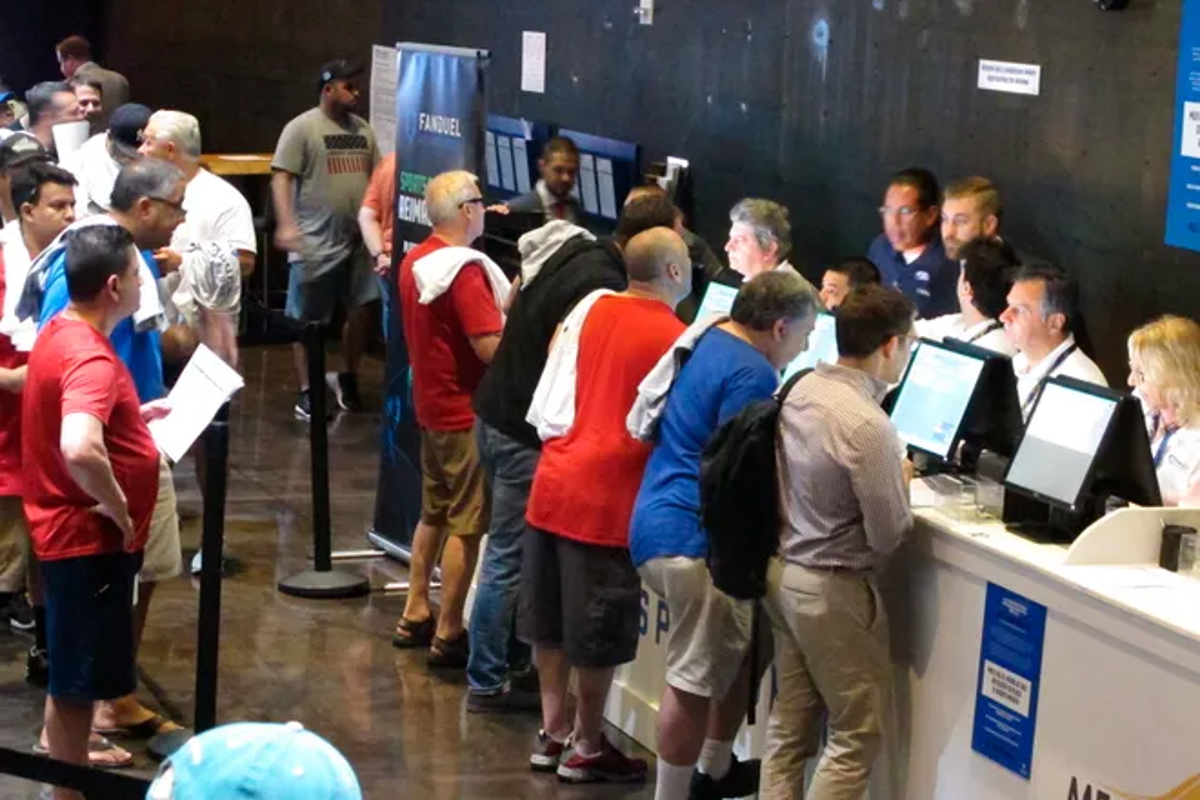Atlantic City Taxpayers Could Be Afforded Reduced Property Tax if Sports Betting Bill Passes
Posted on: March 24, 2022, 03:54h.
Last updated on: March 24, 2022, 04:06h.
Atlantic City officials have long voiced their frustration with the fact that local residents do not directly benefit from legal sports betting occurring in their town.

Legal sports betting in New Jersey began in June of 2018 less than a month after the US Supreme Court struck down the federal law that had previously banned such gambling outside of Nevada. Mobile operations went live that August.
Gross gaming revenue (GGR) from sports betting is subject to an 8.5% tax on in-person bets. Online sportsbook revenue is taxed higher at 13%.
Sportsbook income — regardless of where it originates — is additionally subjectto a 1.25% add-on tax. That money is currently earmarked for the Casino Reinvestment Development Authority (CRDA). The CRDA funds are to “be used exclusively for tourism and marketing programs for the City of Atlantic City.”
The 1.25% sports betting tax equated to approximately $3.8 million last year for the CRDA.
Senate Bill 854 seeks to reallocate the 1.25% directly to Atlantic City. If the legislation passes and is signed by New Jersey Governor Phil Murphy (D), the money would be used to lower property taxes for city residents. Sen. Troy Singleton (D-Moorestown) is the primary sponsor.
SB854 narrowly passed the Senate Budget and Appropriations Committee today by a 3-2 vote. It now moves to the full Senate for additional consideration.
Something for the People
Atlantic City Mayor Marty Small Sr. (D) has been adamant since taking office in the fall of 2019 that his constituents deserve a piece of the sports betting pie. The politician, who won his first full four-year term in November, points out that none of the various supplemental add-on taxes guests incur at Atlantic City resorts benefit Atlantic City residents.
Small highlighted the fact that the parking tax, food and beverage tax, hotel occupancy tax, and sports betting tax all go towards either the state or CRDA — not Atlantic City’s coffers.
When are we going to get our slice of the pie?” Small recently questioned.
Host towns outside of Atlantic City where retail sports betting operates are afforded some financial benefit. East Rutherford, home to the Meadowlands’ FanDuel Sportsbook, receives 0.75% of the sports betting income. Oceanport, home of Monmouth Park’s Caesars Sportsbook, collects 0.5% of the sportsbook GGR.
Atlantic City Control
Atlantic City was placed under state control in 2016 as it faced bankruptcy. Then-Gov. Chris Christie (R) and the Democratic-controlled Legislature voted to assume fiscal control of the casino town as its finances spiraled into disarray because of the closings of four casinos between 2014 through that year.
Last June, current Gov. Phil Murphy (D) extended the state takeover for an additional four years. The takeover gives Trenton most decision-making powers regarding Atlantic City’s governance.
New Jersey lawmakers added on the 1.25% sports betting tax through legislation passed in 2018 and signed by Murphy. Instead of cutting Atlantic City into the 1.25% sports betting tax as a beneficiary, lawmakers opted to redirect the town’s share to the CRDA due to its remaining under state oversight.
Related News Articles
Most Popular
FTC: Casino Resort Fees Must Be Included in Upfront Hotel Rates
Genovese Capo Sentenced for Illegal Gambling on Long Island
NBA Referees Expose Sports Betting Abuse Following Steve Kerr Meltdown
UPDATE: Former Resorts World & MGM Grand Prez Loses Gaming License
Most Commented
-
UPDATE: Whiskey Pete’s Casino Near Las Vegas Closes
— December 20, 2024 — 32 Comments -
Caesars Virginia in Danville Now Accepting Hotel Room Reservations
— November 27, 2024 — 9 Comments -
UPDATE: Former Resorts World & MGM Grand Prez Loses Gaming License
— December 19, 2024 — 8 Comments -
FTC: Casino Resort Fees Must Be Included in Upfront Hotel Rates
— December 17, 2024 — 7 Comments
















No comments yet